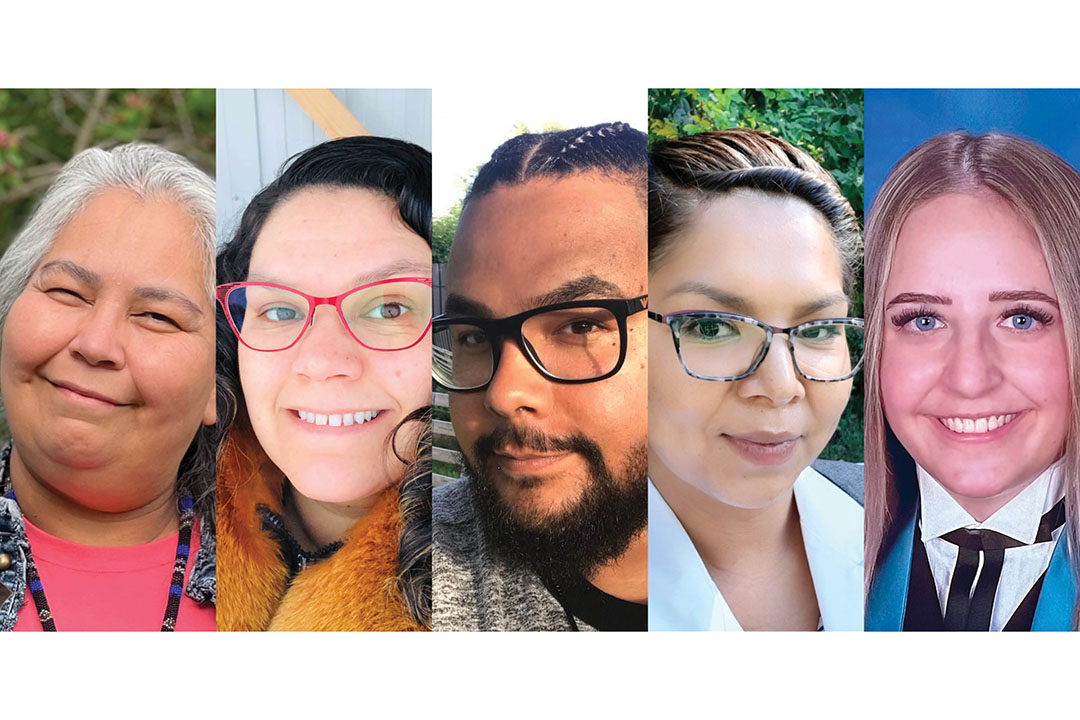
Indigenous students honoured during USask graduation celebration
With origins dating back to the 1980s, an annual powwow has been held on the University of Saskatchewan (USask) main campus in Saskatoon to celebrate the academic achievements of Métis, First Nations and Inuit students.
By John ShellingIn 2020, the largest annual Indigenous event held by the university was cancelled due to the COVID-19 pandemic. This spring, on May 28, the USask community came together for an online Indigenous Graduation Celebration to honour Indigenous students who graduated in the past two years.
We asked six graduates who were honoured as part of this celebration about their plans for the future and why it is important to celebrate Indigenous voices.
IAN WORME
Johnson Shoyama Graduate School of Public Policy
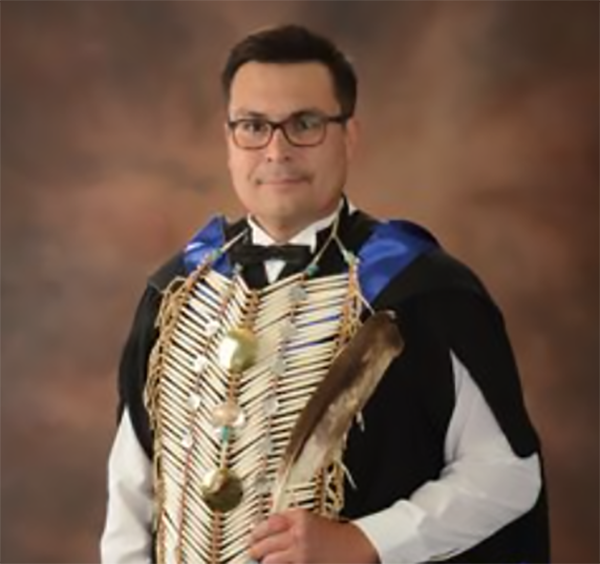
What degree/certificate/diploma did you receive and what are your plans for the future?
I am receiving a Master of Public Administration (MPA) through Johnson Shoyama Graduate School of Public Policy. Currently I work in the field of education and see myself continuing in the field, but in a more policy, governance, partnership work and consultant capacity—particularly around First Nation education, publicly funded education, and governance.
How has the pandemic affected or impacted your studies?
Having to finish the MPA program by doing online courses was a definite adjustment and one that I honestly did not particularly enjoy, like many other students. I appreciate the value of learning in person and with a cohort. I find it’s the best practice for learning and absorbing information or techniques. Online, that element is absent, and for individuals like me it does not provide the same level of personal growth.
What does Graduation Powwow mean to you?
The graduation powwow, I believe, is a symbol of what can be accomplished when there is a collective of people working together for a common goal. For me, the meaning of a graduation powwow is the recognition of pride and perseverance among Indigenous graduates, as well, the recognition that Indigenous cultures and ways of living must be representative in a system that was initially unrepresentative. Do not forget that it has only been 70 years that First Nations could leave their reserves freely without punitive results and roughly 50 years that Indigenous people were really starting to enter the world of post-secondary education.
Why is it important to celebrate Indigenous voices?
The foundations of universities and even this country was not intended to be representative of Indigenous people. We were seldom seen in colleges/universities and in the workforce after the Pass/Permit system was terminated 70 years ago. It took brave individual Indigenous people to change, like my father Dale Worme. He was one of the first on his reserve to receive a post-secondary education in 1984. He was one of a small handful to accomplish this in Saskatchewan at that time. On our own land, our voices and ways were inconsequential to the social and economic capital of a country built to benefit everybody but Indigenous people. For this reason, among others, is why celebrating Indigenous voices is so important.
RUSSELL McAULEY
College of Education
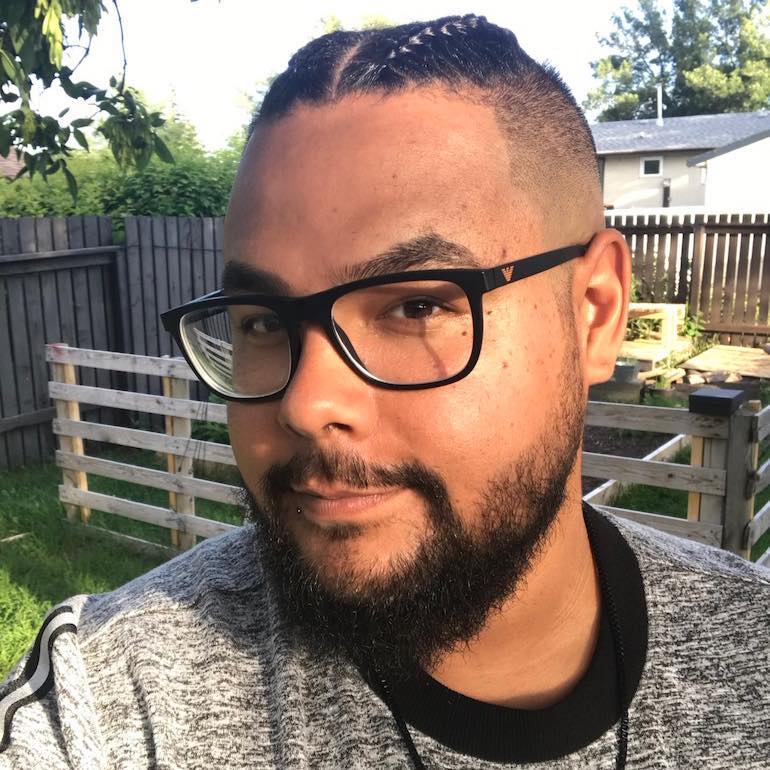
What degree/certificate/diploma did you receive and what are your plans for the future?
I completed a Master of Education in Educational Foundations. Prior to this, I completed a Bachelor of Arts in sociology as well as a Bachelor of Education in secondary education. I recently won the Indigenous Leadership Award, which I will use to begin my PhD journey. My plan for the future is to continue creating equitable outcomes for all walks of life using Indigenous perspectives and teachings from our ancestors to do things in a good way.
How has the pandemic affected or impacted your studies?
My program was mostly online so my educational journey was not affected by the pandemic as much as others were. I did have one course with (Dr.) Alex Wilson (EdD) that was typically done in person, on the land, which was delivered online due to COVID-19. It would have been more powerful if we were able to meet in person, but I believe Alex did well considering the course was not meant for online delivery.
What does Graduation Powwow mean to you?
Graduation powwows within USask are beautiful demonstrations of celebrating our educational accomplishments. They are also important ceremonial reminders for us as Indigenous people to remain resilient, do things in a good way and strive for social and racial equity.
Why is it important to celebrate Indigenous voices?
Although I have learned a lot from non-Indigenous Peoples, the most vital lessons I have received continue to come from fellow Indigenous Peoples–leaders who have paved the way for the next generation. As an Indigenous youth who has had the privilege of listening to many Indigenous voices, these opportunities gave me the strength, motivation and knowledge to continue the journey of retaining and revitalizing our history and cultures that have kept us going since time immemorial. These knowledge systems live on in the stories of our ancestors and their resilience echoes in contemporary spaces we occupy.
CHEYENNE DUMONT
College of Agriculture and Bioresources
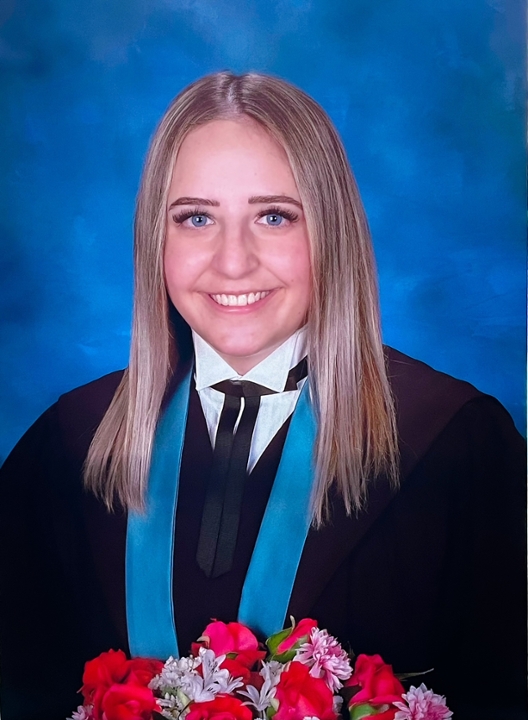
What degree/certificate/diploma did you receive and what are your plans for the future?
I received a Diploma in Agronomy, and a Diploma in Agribusiness. My plans for the future include working for Cargill as a crop inputs associate, and to eventually move into being a crop inputs representative for my own territory.
How has the pandemic affected or impacted your studies?
The pandemic actually impacted my studies in a positive way. I was able to take on a greater workload and was able to get a part-time job. I did six classes per term, while working in the mornings. It wasn’t easy to do all of this, but with good organization and time management, I made it possible.
Who has been you biggest supporter during your education and is there anything you’d like to use this space for to say to them?
If I am going to be completely honest, my biggest supporter was myself. I was the one who had to wake up and push myself every day to work towards my goals, to get assignments done on time and to put in the effort to learn the content in my classes. Yes, I had friends and family, as well as university staff, who supported me along the way, but in the end it’s all about supporting yourself to get to where you want to be. With that being said, I would like to thank my family and friends, and the University of Saskatchewan faculty, for always believing in me, and for telling me I’ll get through it when things (classes, assignments, etc.) were not easy.
What does Graduation Powwow mean to you?
It means honouring those of Indigenous cultures, and celebrating their achievements. To me, it is an event that brings our culture into our education, which isn’t normally done. It is a way to celebrate Indigenous students in a more personal way through our cultural practices.
Why is it important to celebrate Indigenous voices?
It is important to celebrate Indigenous voices because to successfully Indigenize our community, we need to be promoting and celebrating those voices from our culture who are making (or who have made in the past) a positive impact, as well as those who are working toward spreading empowering messages.
IIMALI QAAPIK
College of Law
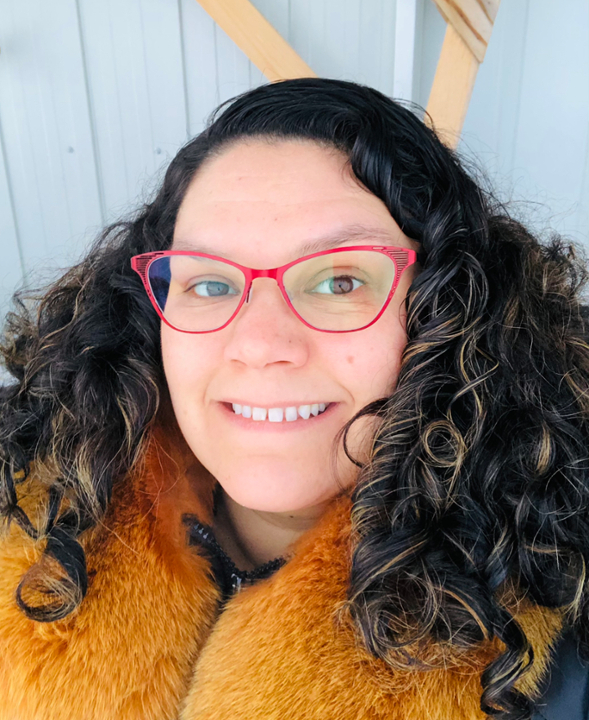
What degree/certificate/diploma did you receive and what are your plans for the future?
I graduated from the Nunavut Law Program in Iqaluit. I received a Juris Doctor degree. I am currently articling with the Public Prosecution Service of Canada in the Iqaluit office.
How has the pandemic affected or impacted your studies?
Luckily, our studies were not dramatically affected during the pandemic as our territory wasn’t hit until much later on. However, there were a few courses we had to take virtually. We were able to graduate on time.
Who has been you biggest supporter during your degree and is there anything you’d like to use this space for to say to them?
My biggest supporter was my common-law spouse, William Alainga. He has been there supporting me throughout the entire four years of my studies. I couldn’t have done it without him. We did it!
Why is it important to celebrate Indigenous voices?
It is very important to celebrate Indigenous accomplishments because with our education, we can better help our communities develop and thrive.
CANDACE LONGJOHN-CONSTANT
College of Education
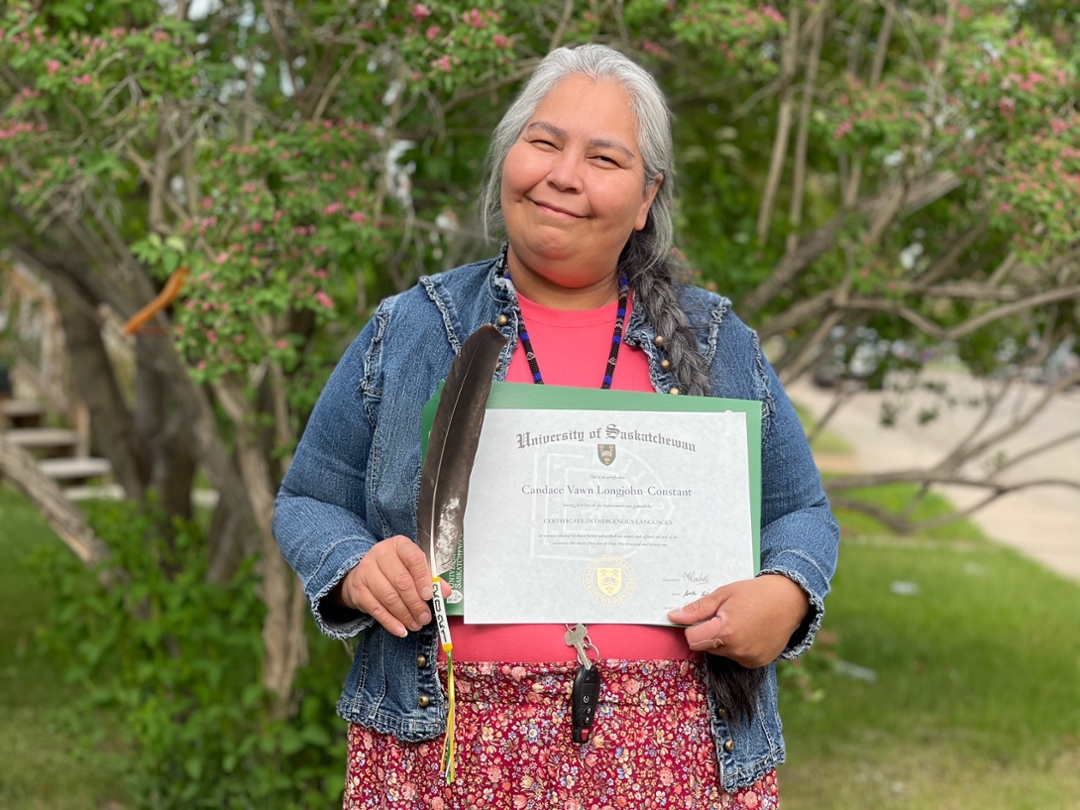
What degree/certificate/diploma did you receive and what are your plans for the future?
I completed the Certificate in Indigenous Languages this spring. Previously, I completed a Bachelor of Education in 2001 and a Bachelor of Arts in anthropology in 2018. My plan for the future is to take a master’s program in possibly curriculum studies or anthropology or linguistics. My heart is a blend of all three. Indigenous language retention and acquisition is where my heart is.
How has the pandemic affected or impacted your studies?
This pandemic was filled with unknowns at the beginning. I was already midway through the program when we had to move to online learning. Having to continue these classes gave me something to look forward in learning. Staying hopeful in knowing there was a task to do has kept me regulated during this pandemic. Sometimes anxiety and worry took a toll. Studying from home allowed for more time to be a mom to my kids outside of classes and work. The pluses were: I didn’t have to commute to Saskatoon from P.A., prep a sitter with meals for the day, get a coffee/lunch, check the weather for road conditions, make sure I had enough energy, or spend a lot on parking money to be successful in this program.
For me, staying busy and healthy at home learning was great! I enjoyed being locked down (during the lockdown part of the pandemic) with my favourite people, my family bubble. I was already well-versed with online classes. For my bachelor’s degree, I would take all the online classes I could to save gas money. Taking classes during the pandemic allowed for better communication with the instructors and classmates. If I didn’t understand how to say or do something, I could rewind the recorded Zoom class or re-read what was required of me; there was more positive practice. I had more time to complete my class projects and I learned many new online apps to be more successful. Another plus was I loved having the distraction. Classes kept me off the news and at home safe in my bubble.
What does Graduation Powwow mean to you?
To be included as part of the Graduation Powwow means that I, and others like me, will be recognized in one of the highest honours one can ever be recognized in –a grand entry, as a dignitary amongst dignitaries–to symbolically walk with eagle staffs, their carriers and Elders opening up a ceremony of family through prayer. It means the world to me and makes my heart happy to be included.
Why is it important to celebrate Indigenous voices?
Celebrating the voices of Indigenous scholars is vital. We should stand up to give praise and honour for their hard work well done. Each Indigenous student is a leader in their family. We overcome many obstacles or hardships, from funding issues to intergenerational traumas, to name a couple. Now, with resilience and #neverstuck, we don’t give up. We keep on trying, giving ourselves positive self-talks, and are paving a way by doing what needs to be done–by Indigenizing everything! It was once illegal to be anything or do anything Indigenous. These days, we’re exemplifying what was always inherent within us, and as each year passes, celebrating our inherent rights are just going to get better.
LISA TOURANGEAU
College of Nursing
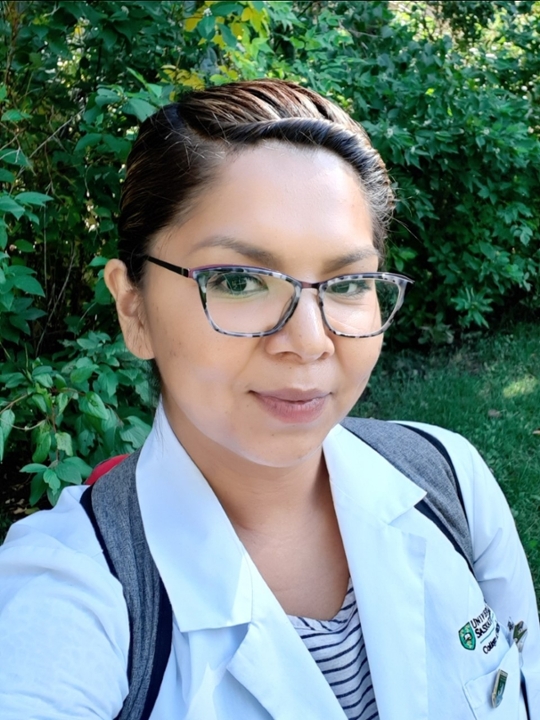
What degree/certificate/diploma did you receive and what are your plans for the future?
I am receiving a Bachelor of Science in Nursing degree. I am currently working at City Hospital and plan on continuing to work there as a registered nurse to gain experience, and then further my education through advanced nursing certification in addictions or mental health so that I may work in the community until my children complete their education in Saskatoon. Then I plan to return to work in my home community.
How has the pandemic affected or impacted your studies?
The pandemic has challenged my education journey by removing the social supports I had used during my nursing education, and it impacted my clinical hours. I had always made it a priority to study in groups or on campus outside of class hours, but when campus shut down, I had to adapt my learning needs and establish a new routine and study on my own, as well as attend lectures through online platforms, which was a huge learning curve.
What does Graduation Powwow mean to you?
The Graduation Powwow allows me to find a sense of community and share my success with the Indigenous community that I have found during my time on campus. I am proud of the accomplishments I have made working these past four years and would like to share our culture with my children.
Why is it important to celebrate Indigenous voices?
As an Indigenous mother, I know the importance of setting a positive example for younger generations, such as my children, by furthering my educational goals. I believe that Indigenous voices need to be heard so that others can believe that achieving a higher education is important and attainable despite challenges we may have faced as Indigenous people.
Article re-posted on .
View original article.

